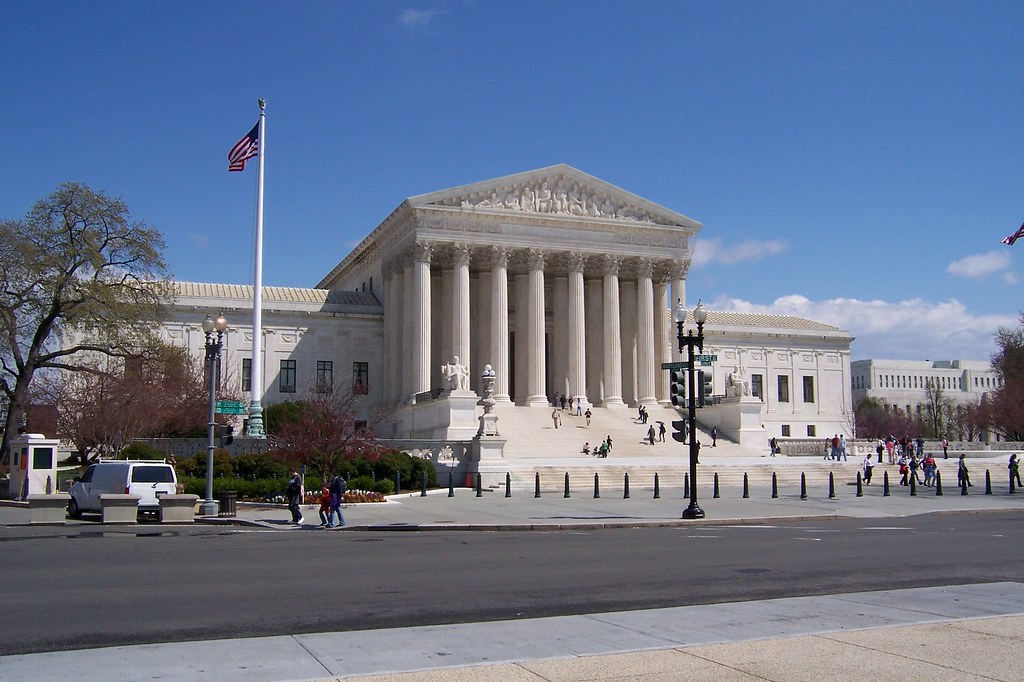Key Takeaways
- Supreme Court justices questioned using emergency powers to set tariffs.
- Donald Trump’s plan would let him apply random tariffs worldwide.
- The law he cited does not mention tariffs.
- Justices worry this move could sideline Congress and hurt the global economy.
Supreme Court Doubts Trump’s Emergency Tariffs Plan
In a recent hearing, most Supreme Court justices showed real doubt about Trump’s bid to use emergency powers for emergency tariffs. They noted that the law he cited gives the president broad power over national emergencies, but it never mentions tariffs. Therefore, imposing random taxes on goods from every country seems beyond that authority.
During the session, justices asked tough questions. They wondered why Congress would let the president rewrite trade rules on his own. Moreover, they pointed out that this move could reshape global trade. In short, they saw a big risk to the balance of power.
What Are Emergency Tariffs?
Emergency tariffs are special taxes on imports meant to protect a country in a sudden crisis. For example, a nation might face a flood of cheap steel that hurts local mills. Then the president or lawmakers could raise steel taxes to keep local jobs safe. However, the law Trump cited makes no mention of tariffs. Instead, it lists supplies, equipment, and materials needed in a national emergency.
Thus, lawyers for Trump say that tariffs count as “materials” to respond to an emergency. Nonetheless, most justices seemed unconvinced. They stressed that Congress never imagined this law would let a president set wide-ranging trade taxes.
Why Justices Are Worried
Justices worry that emergency tariffs could destabilize the global economy. First, imposing random taxes might spark trade wars. Second, foreign nations could retaliate with their own duties on American goods. Third, sudden changes in tariffs would make prices unpredictable for businesses and consumers.
Moreover, the Constitution gives Congress the power to raise revenue. By using emergency powers, the president would sidestep that process. Consequently, the balance between branches of government could break down. As one justice said, “Congress would be cut out of a major power.”
How Congress’s Power Could Be Affected
If the Court allows emergency tariffs, Congress might lose its role in setting tax rates. Traditionally, representatives debate and vote on tariffs in ordinary bills. This process ensures transparency and debate. However, Trump’s plan would let a president act alone in times of emergency.
In addition, future presidents could claim almost any crisis as a reason for emergency tariffs. For example, they might declare a crisis in farming or tech and then raise import taxes. Such a practice could become routine. Therefore, Congress fears losing its check on presidential power.
Possible Impact on Global Trade
Emergency tariffs could shake the foundations of free trade. First, they could halt existing trade agreements overnight. Second, companies may move factories away from unstable markets. Third, consumers might face higher prices on everyday goods, from electronics to clothes.
Furthermore, allies could see the United States as an unreliable partner. They might form new trade blocs without the U.S. Meanwhile, countries like China could exploit the chaos to gain more influence in global supply chains. In the long run, unpredictable tariffs could slow economic growth worldwide.
Next Steps in the Legal Fight
After hearing arguments, the Supreme Court will look at written briefs. Lawyers from both sides will send more papers explaining their views. Then the justices will hold private talks and vote on a ruling. A final decision could come in several months.
If the Court strikes down emergency tariffs, Trump’s plan ends there. But if the Court approves it, the move would head back to lower courts. Congress might then pass new laws to block or limit emergency tariffs. Ultimately, this fight could reshape U.S. trade policy for years.
Frequently Asked Questions
Why did Trump propose emergency tariffs?
He argued that a sudden economic threat to national security justified extra import taxes on certain goods. He claimed these would protect U.S. industries from unfair foreign competition.
How could emergency tariffs affect everyday prices?
Tariffs raise the cost of imported goods. Therefore, stores may charge more for electronics, clothing, and tools. In turn, American families would pay higher bills.
What law did Trump cite for emergency tariffs?
He cited an emergency economic powers provision that lets the president block imports tied to an emergency. However, the text never mentions tariffs, only supplies and materials needed for defense.
Could Congress stop emergency tariffs if the Court approves them?
Yes. Congress could pass new legislation to clarify that emergency powers do not include tariffs. Such a law would override or limit the president’s authority in this area.
Source: https://www.nydailynews.com/2025/11/09/terminate-the-tariffs-trumps-unlawful-taxes-must-lose/
